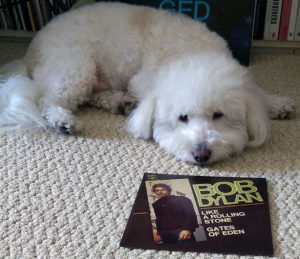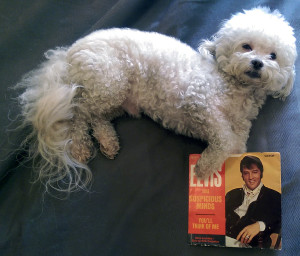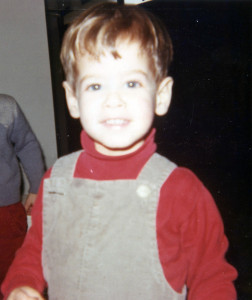Try a little kindness and you’ll see it’s something that comes very naturally
I have a neighbor down the hall who has never said hello to me. He has never acknowledged my existence. We’ve been neighbors for twelve years. Until recently, that rankled me. Is it so difficult to say hello? To smile? To half-smile?
There is a couple who live on the floor beneath mine. A couple of years ago, after our morning walk, I got on the elevator with my dogs. One of the guys got on as well and said, unsolicited, “I hate your dogs.” That’s a terrible thing to say under any circumstances, but you should know, my dogs don’t bark. They don’t jump up on people they don’t know. They were standing in the corner of the elevator next to me when this man shared his opinion, an opinion that could not have any positive effect on the environment. Recently that same guy and his partner were on the elevator. The vocal dog hater saw me approaching (sans pets) and held the door open for me. I said thank you. When they exited on their floor, the partner of the vocal dog hater admonished the vocal dog hater. “See what happens when you hold the door for people!” They get on the elevator? They say “Thank you?” I’m not sure what his beef was, but again, what positive effect does such an attitude encourage? If those are your thoughts, why share them?
It still bothers me a little to encounter such uninvited nastiness, but I’ve come to realize it’s not me. It’s them. I’m nice. I say thank you. I adopted two rescue dogs, one of which was abandoned by his previous owners, and nurtured them. That someone can’t appreciate who I am, that someone can’t appreciate what I do, that someone can’t bring themselves to be courteous or half-smile is a sign of their damaged psyche.
Once I fully realized this I decided to make a concerted effort to display more acts of kindness. I say hello to people I pass on the sidewalk, which, as a native New Yorker, took some getting used to. I smile at store clerks, not just the ones I want to date. I “like” more posts on Facebook and LinkedIn.
The more kindness we put out into the world, the kinder the world will be.
The lyric at the top of this post comes from Diana Ross’s first post-Supremes solo hit, 1970’s “Reach Out and Touch (Somebody’s Hand).” The song was written by Nickolas Ashford and Valerie Simpson, the married couple who wrote so many great songs for Miss Ross, Marvin Gaye and Tammi Terrell, Ray Charles, Chaka Khan, and others, including themselves.
Today Valerie Simson turns 69 years old. Our playlist consists of twenty of Ashford & Simpson’s finest.
Click here to like Tunes du Jour on Facebook!
Follow me on Twitter: @TunesDuJour



